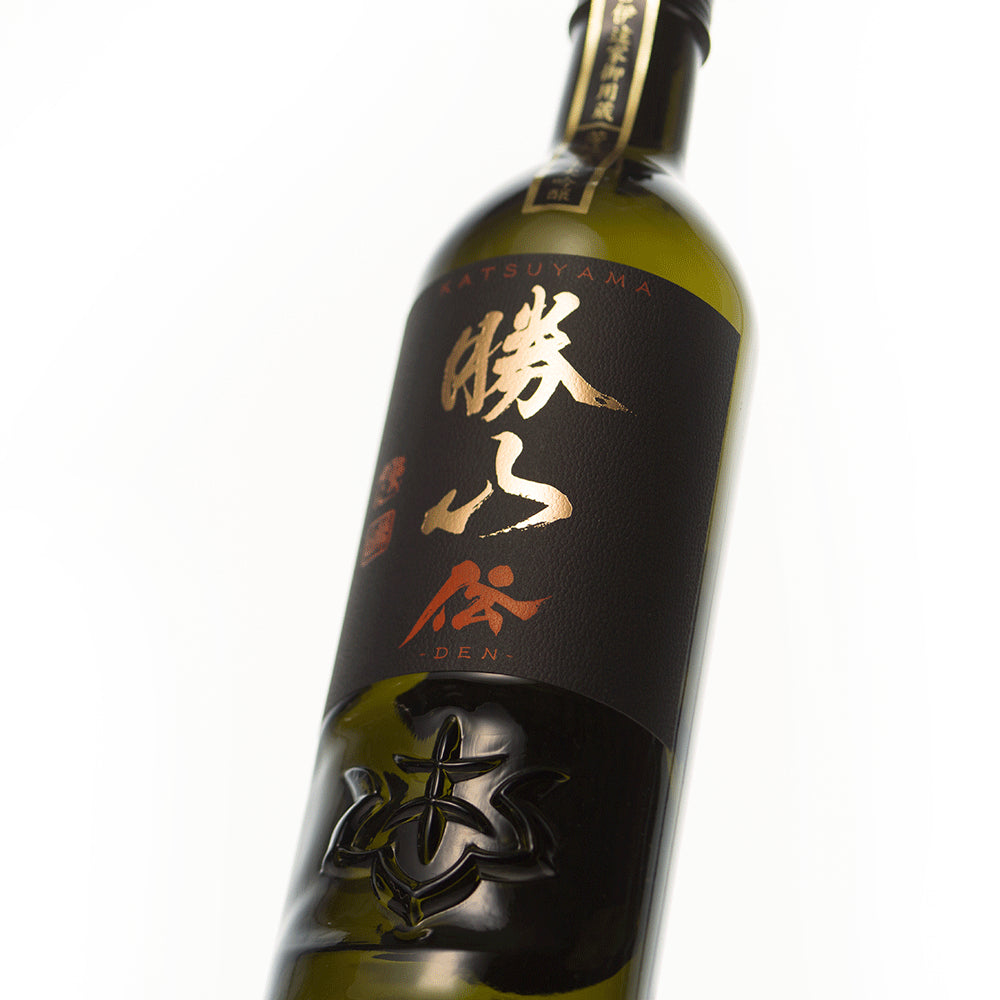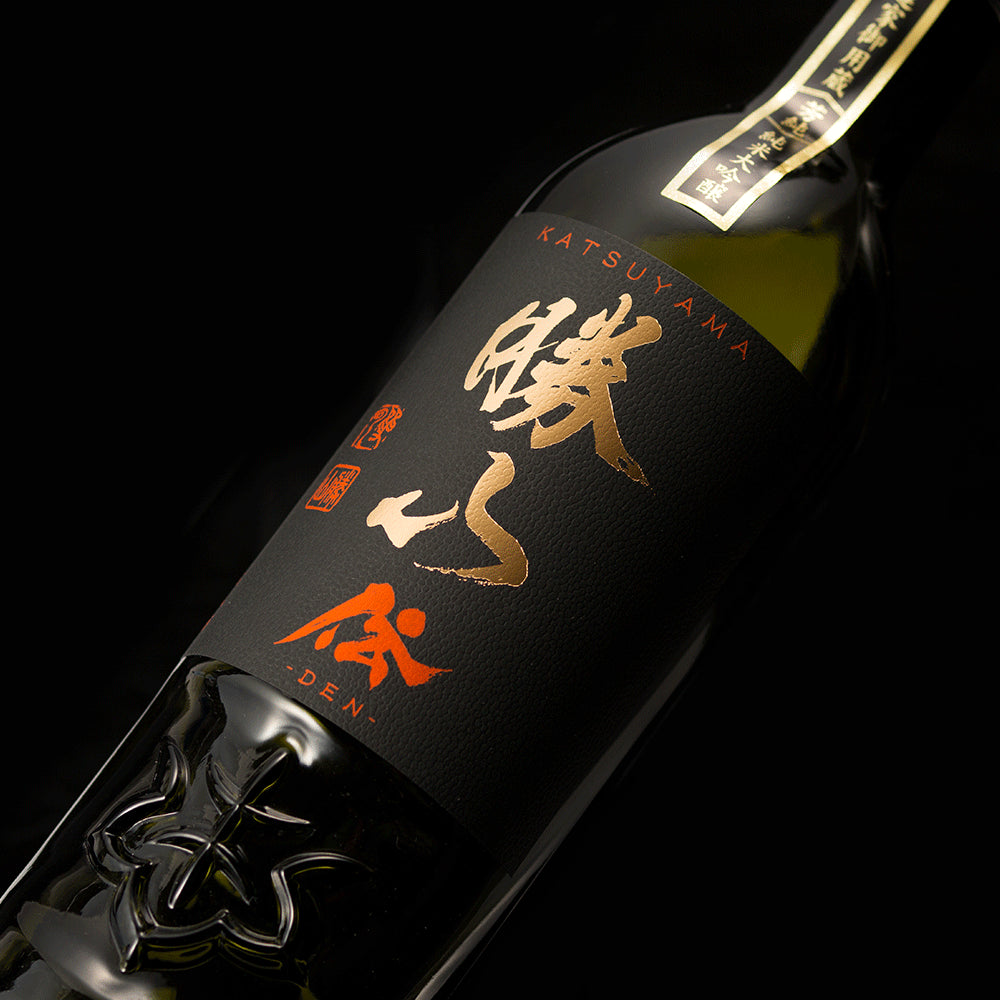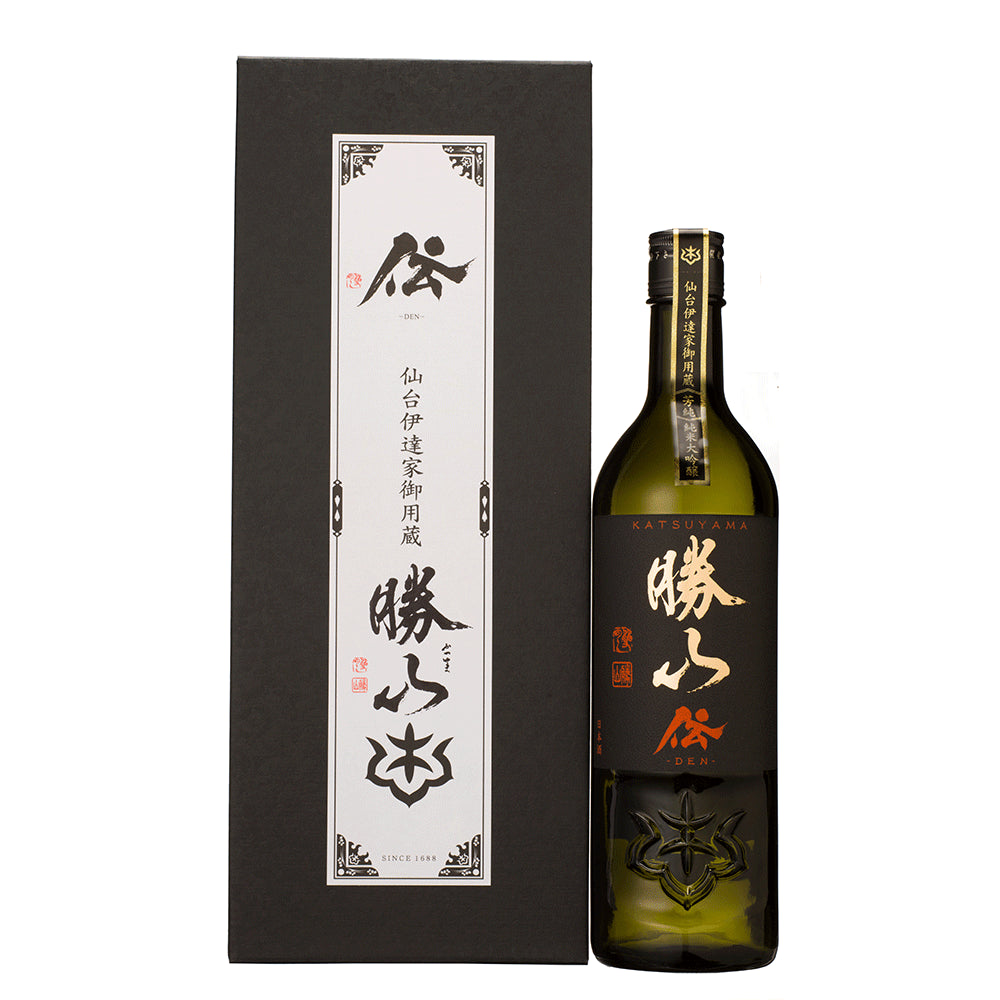-
 >
>
- Product list >
- Katsuyama Den Junmai-daiginjo undiluted (720ml)
Katsuyama Den Junmai-daiginjo undiluted (720ml)
詳しく見る
- *All prices shown are the product prices from the Japanpage:.
- *Product price can be shown in multiple currencies as reference values.
- *Payment should be made in Japanese yen.
- *After filling in delivery address, grand total (product price + shipping cost (packing + shipping + insurance) +tariffs & taxes) will be shown on the shipping cart page.
- *All prices shown are the product prices from the Japanpage:.
- *Product price can be shown in multiple currencies as reference values.
- *Payment should be made in Japanese yen.
- *After filling in delivery address, grand total (product price + shipping cost (packing + shipping + insurance) +tariffs & taxes) will be shown on the shipping cart page.
Awards
Sake Selection2018 Junmai Daiginjo Division platinum
"Katsuyama Den Junmai-daiginjo, undiluted (720ml)" is a Japanese sake brewed through traditional methods, using "Yamada Nishiki" - the highest class of brewer's rice produced in Mirai, Hyogo Prefecture, polished down to a ratio of 35%. The carefully brewed moromi (fermenting mash) is stuffed into cloth sacks, and the precious essence within is extracted through a process called Fukuroshibori, which drips out the sake without the use of human hands. Next comes the quick pasteurization process, which maintains the sake's freshness. Then it is stored at - 5℃ in the Stored in freezing temperature process. As is typical with a Junmai Daiginjo, this sake has a rich aroma, is beautifully clear, with a strong and full-bodied flavor, which brings out the best in a wide variety of cuisine. The name "Den" originates from its history as a traditionally brewed sake, and also contains a message of "communicating emotions and spirituality". At the 2019 Kura Master, a competition judged by French professionals, including top-ranked sommeliers representing 5-star hotels from France and experts involved with Michelin Star restaurants, it received the "President's Award" as the No.1 Japanese sake.
Pairing food proposed from Vendor
Wagyu (Japanese beef) steak, salmon toro (the most valuable, fatty cut)
About "Katsuyama"
Japanese sake "Katsuyama" inherits a tradition that has been established for more than 320 years. It is rumored that the origin of the name lies in the superstition that samurai won victories in heaps, and is associated with the "Katsuyama Chignon", a fashionable women's hairstyle in the early Edo period (17th century). It is a full-bodied sake made through a slow and luxurious preparation that involves producing only 1 tank per week, where the moromi (a mash of barley, barley koji, yeat and water) is carefully fermented.
Recommended temperature
- Atsukan (50 - 55℃)
- Jokan (45 - 50℃)
- Nurukan (30 - 40℃)
- Room temperature (15 - 20℃)
- Hanabie (10℃)
- Yukibie (5℃)
Type


Tag
Appearance
-
Clarity
Transparency
Hazy
-
Colour
Colorless
Dark brown
-
Intensity
Water
Deep
Nose characteristics
-
Intensity
Low
Strong
Taste characteristics
-
Light / Body
Light
Body
-
Sweet / Dry
Sweet
Dry
-
Simple / Complexity
Simple
Complexity
-
Acidity
Low
High
-
Umami
Low
High
-
Finish
Low finish
Long finish
Aroma and flavor
Detailed information
| Volume | 720ml |
|---|---|
| Size (L W H) | 8.5 x 8.5 x 29.5 cm |
| Weight | 1.2kg |
| Ingredients | Rice, Rice koji, Water |
| Region | Miyagi |
| Alcohol content | 17%vol. |
|
Sake Meter Value
|
+2 |
|
Acid level
|
+1.4 |
|
Polishing ratio
|
35% |









